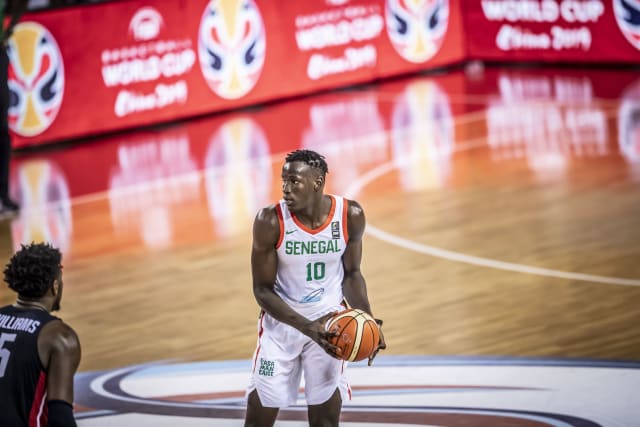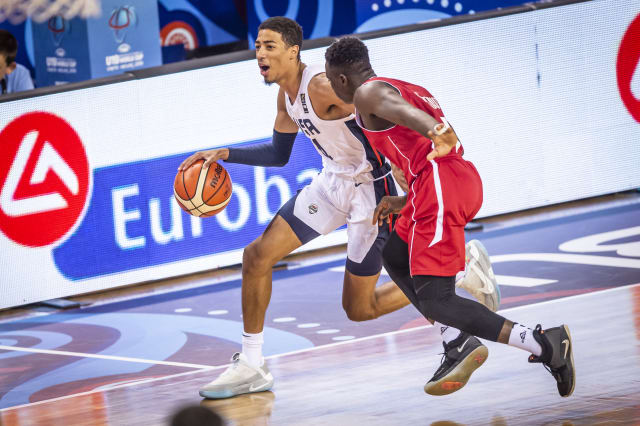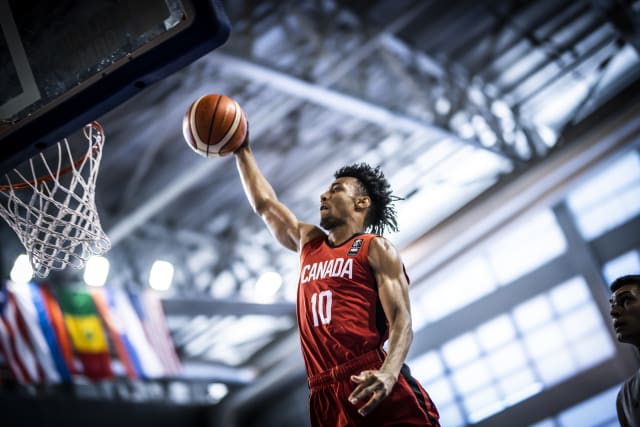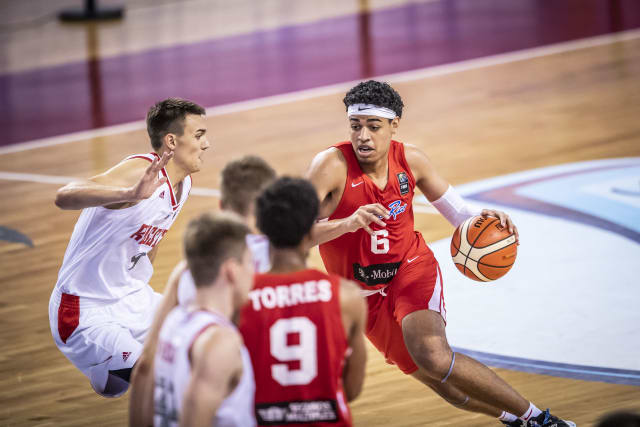Five players who blossomed at U19 World Cup
HERAKLION (Greece) - Many of the players who expected to shine at the FIBA U19 Basketball World Cup 2019 stepped up and produced. But here are five who really rose to the occasion.
HERAKLION (Greece) - Many of the players who expected to shine at the FIBA U19 Basketball World Cup 2019 stepped up and produced. But there were a handful who really rose to the occasion. Here are five players who blossomed in Heraklion, either making a jump from a previous tournament or playing strong in their first FIBA event.
Ibou Badji, Senegal

Badji did not play for Senegal last summer at the FIBA U18 African Championship 2018 but last December made the jump from the NBA Academy Africa in Senegal to Barcelona in Spain. A giant of a man, Badji excelled in his first tournament for Senegal, averaging 6.9 points and 5.1 rebounds while being tied for second in the tournament with 3.1 blocks. Badji did not have it easy at times, with so many big men on the team and trying to find his place on the court and in the rotation. But his best came in the Classification 13-16 against New Zealand, where he collected 17 points, 10 rebounds and 5 blocks.
Tyrese Haliburton, United States

Haliburton had never been selected by USA Basketball to try out for a previous youth tournament, but the guard from Oshkosh, Wisconsin did not miss out on his chance to play in Heraklion as he convinced head coach Bruce Weber of his skill set. Haliburton, whose cousin is three-time NBA All-Star Eddie Jones, excelled in his freshman season at Iowa State, helping the team to the NCAA Tournament and leading the Big 12 Conference with a 4.5 assist-to-turnover ratio and was third nationally in offensive rating (136.8), including one game with a school-record 17 assists and just one turnover. Haliburton carried that over to the United States as he scored 7.9 points while leading the tournament with 6.9 assists - and just 1.1 turnover per game - to go with 2.4 rebounds and 2.3 steals. He also nailed 56 percent of his three-pointers in helping United States win the title while also being named to the All-Star Five.
AJ Lawson, Canada

Lawson makes this list because he lived up to the expectations of him making the jump from being one of a big four to the clear leader for Canada. Last summer, Lawson was one of four players who averaged at least 14.5 points while attempting at least 10.7 per game at the FIBA U18 Americas Championship 2018. Not only was Lawson named the captain this summer but he was the clear leader of the team, averaging 16.7 points a game - 5.0 points more than any other player - on a team-high 13.4 shots while also dishing out a team-high 3.4 assists on a Canadian team that ended up finishing eighth.
Julian Strawther, Puerto Rico

Strawther had a certain level of expectation coming into the tournament as a highly-regarded talent. But the 2002-born wing from Las Vegas had never played for Puerto Rico, the homeland of his late mother. And the team was otherwise made up predominantly of players who finished fourth at the FIBA U18 Americas Championship 2018 and third at the FIBA U17 Basketball World Cup 2018. Strawther did not make the United States team for the U17 World Cup, but he did not disappoint in his Puerto Rico debut, finishing as the second-leading scorer with 22.0 points per game, including games of 35 and 40 points; while also averaging 6.1 rebounds, 1.4 assists and 1.1 steals.
Zakhar Vedishchev, Russia

Vedishchev was playing his first international tournament for a Russia team that finished fourth at the FIBA U18 European Championship 2018. The small forward had spent the last couple of years in the United States at the famed prep school Montverde Academy, practicing with the likes of RJ Barrett. Vedishchev, the son of Lokomotiv Kuban president Andrey Vedischev, went to the United States to learn English and get used to the athleticism of American basketball. He showed in Heraklion that the exposure had paid off, leading the Russian team in scoring with 16.5 points per game to go with 2.8 rebounds and 3.2 assists while shooting 40 percent from three-point range. Vedishchev stepped up his game in the final three games, scoring at least 22 points in all of them including a 24-point showing against the United States in the Quarter-Finals and then 22 points and 9 assists against Serbia in Classification 5-8 as the Russians ended up fifth in the tournament.
FIBA